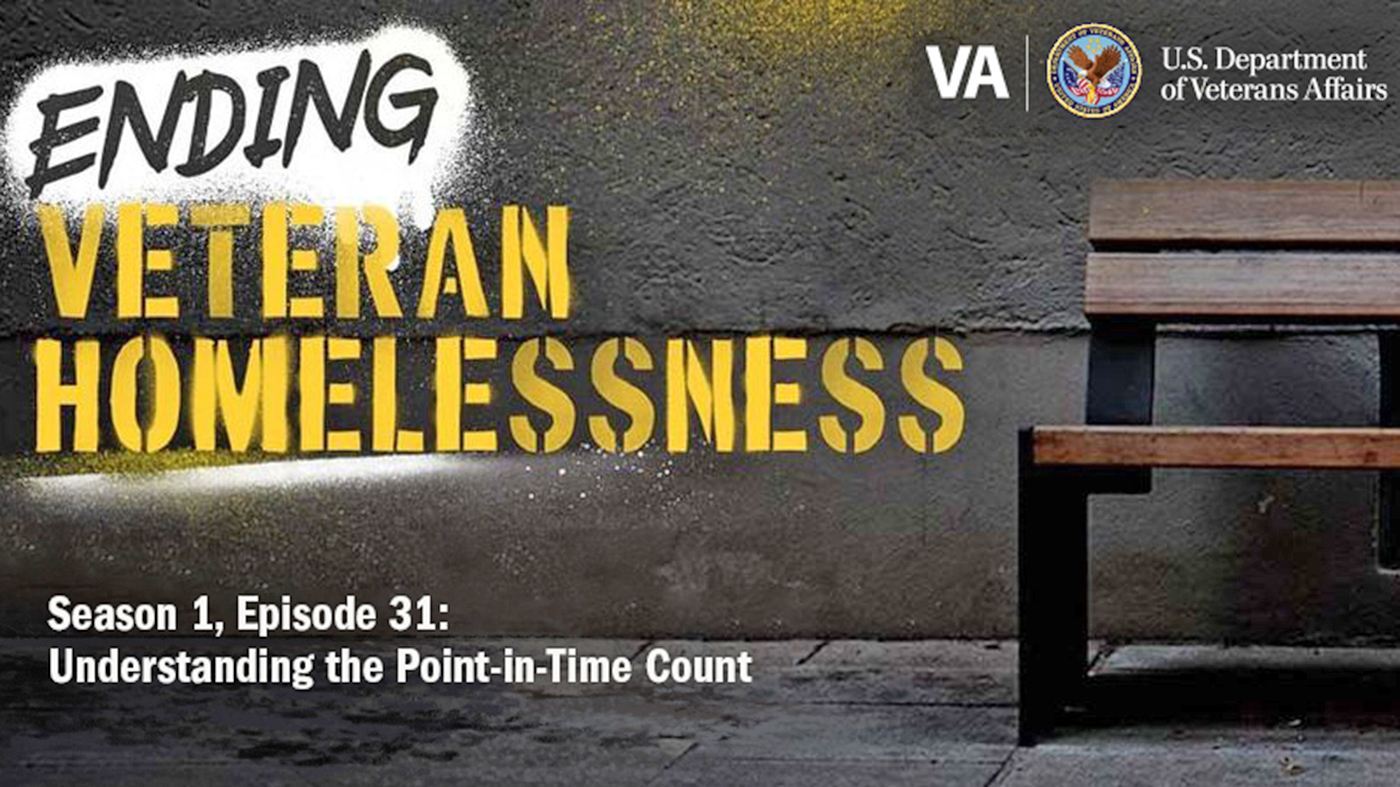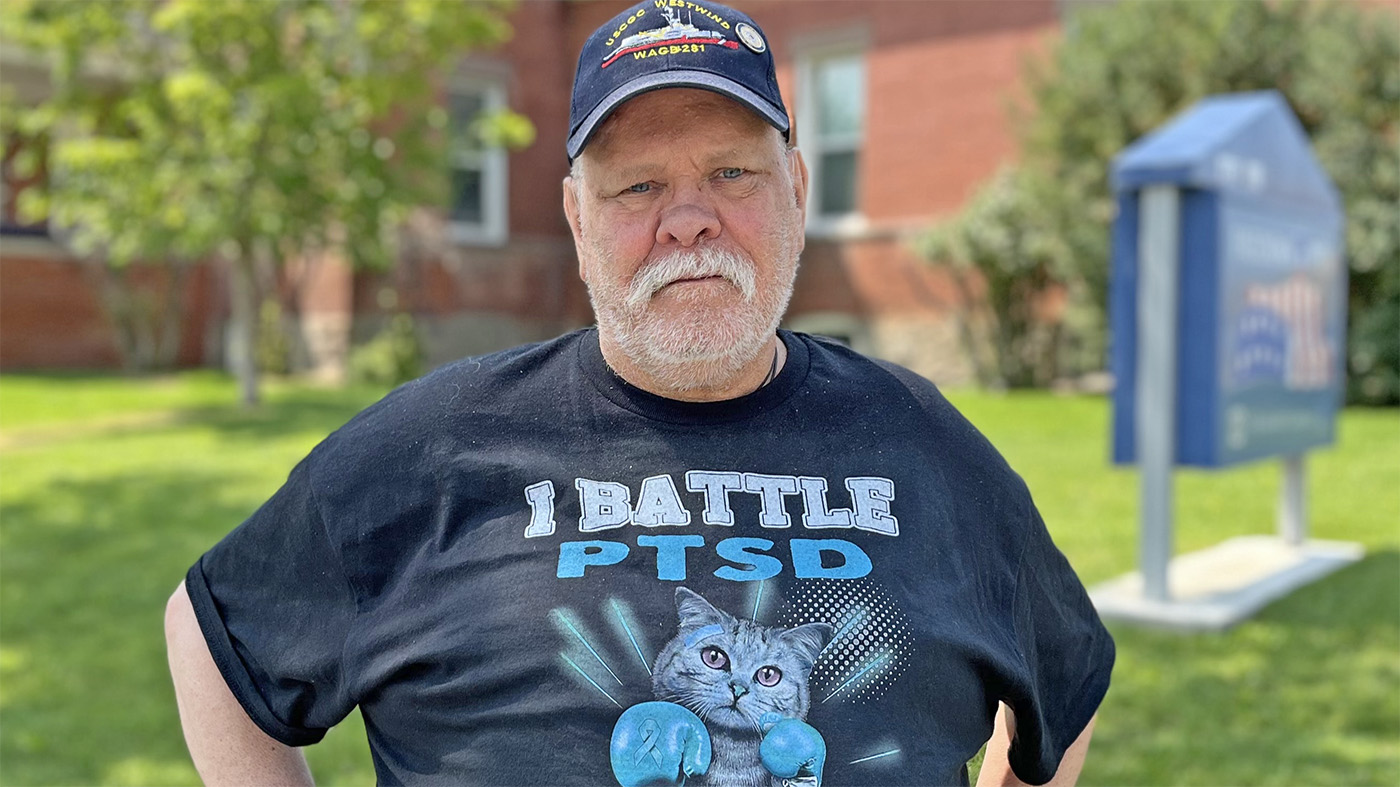In poor health without a dime in his pocket, Veteran Frank Ooten was trying to quit drinking and straighten out his life. That’s when a court representative referred him to Steps House, a housing assistance program in Knoxville, Tennessee, that helped him get back on his feet.
Founded in 1991, Steps House has 32 homes with 140 beds that provide shelter to people working to overcome addiction or homelessness — as long as they refrain from using drugs or alcohol. Steps House dedicates 40 beds to Veterans who are experiencing homelessness, thanks to grants from VA’s Grant Per Diem (GPD) program. The GPD program aims to help Veterans who are homeless achieve residential stability, increased skills and income, and greater self-determination.
Building Positive Connections
While enrolled at Steps House, and with assistance from his GPD case manager, Ooten attended individual and group programs that emphasize recovery, budgeting, housing, and coping skills. But the personal connections he made there were just as important.
Ooten praised the friendships he made with fellow Veterans.
“The people in this program really helped and inspired me,” Ooten said. “I was scraping the bottom, and now I feel like I’ve built something significant to hold onto.”
“The connections he made with the other Veterans here was invaluable,” said Kristy Troutman, a behavioral health care manager at Steps House. “Not only did he have case managers helping him, but he had other Veterans that could assist him when he truly needed it.”
Mending Family Relationships and Finding Stable Housing
When he left Steps House after nine months, Ooten had stopped drinking and saved over $5,000. He also achieved his goal of moving into his own apartment, using his newly acquired budgeting skills.
Ooten also began rebuilding relationships with his sisters and nephew.
“Being in Steps House helped me reach some of my goals and strengthened my relationship with my family,” Ooten said. “Both of my sisters helped me furnish my apartment, and they’ve been there every step of the way.”
Now, Ooten lives in his own apartment in a senior assisted living complex in Harriman, Tennessee, and continues to speak with his sisters and nephew every week.
“If you need help or are homeless, you should contact VA and use their programs,” Ooten said. “I learned that you have to work the program to make it work for you.”
This year, VA’s GPD program is awarding more than 425 grants, totaling about $279 million, to community organizations like Steps House. The GPD program has provided Veterans who are homeless with community-based transitional housing and supportive services since 1994. As a result of the GPD program and other VA efforts, the number of Veterans experiencing homelessness in the U.S. has declined by an estimated 50% since 2010.
More Information
- Read the news release about GPD’s 2020 award announcement.
- A list of GPD grantees is available at https://www.va.gov/homeless/gpd.asp.
- Veterans who are homeless or at risk of homelessness should contact the National Call Center for Homeless Veterans at 877-4AID-VET (877-424-3838).
- To find up-to-date information and resources on COVID-19, check out VA’s new resource page.
VA’s Homeless Programs Office assists Veterans in obtaining permanent and sustainable housing with access to high-quality health care and supportive services.
Jill Smeltzer is a Licensed Clinical Social Worker and serves in the role of the Grant and Per Diem Liaison for the James H. Quillen VA Medical Center in Johnson City, TN.
Topics in this story
More Stories
William Snow, senior program specialist at HUD, explains how the Point-in-Time Count provides valuable data on Veteran homelessness.
VA permanently housed 47,925 homeless Veterans in fiscal year 2024, exceeding its goals for the third year in a row.
VA Housing First changed the life of Grady Kendall, Coast Guard Veteran, because it was there when life knocked him down.







